FitzGerald’s in Berwyn–America at its best
Kind and little incongruities make for a big and strong community.
And so it has been with my beloved FitzGerald’s in Berwyn. Think about it.
When Bill FitzGerald, his brother Chris and their late father Chris, Sr. opened FitzGerald’s in 1980, the working-class strip of West Roosevelt Road was a no man’s land. And they had the idea to create something like a Gulf Coast roadhouse? Smart money might have bet on a disco with 1980 hits like Diana Ross’s “I’m Coming Out” and Blondie’s “Call Me,” perhaps a Berwyn version of the “Stay Out All Night Discotheque” in Stone Park.
But it worked out to something beautiful, a song everyone could dance to.
Bill was a house painter and a music fan. He has the curious soul of a riverboat captain. He grew up in Oak Park. His father was a freelance greeting card writer and editor of Nuclear News magazine in La Grange Park. Chris was painting houses and was studying to be a special education teacher. No one had any experience in the music business.
The club had enjoyed a previous life in the 1950s as a jazz room called the Deer Lodge (“Where a Doe Can Make a Buck”) but had fallen into serious disrepair. After a 1980 New Year’s Day brunch, the three men bought the Deer Lodge and the land for $60,000. It took them nine months to remodel the tavern. They removed the north woods folk art mural that included a bear playing accordion while singing “hoya, hoya.”
Chris, Sr. and his wife Margaret took out a second mortgage on their house.
They took a big chance.
And on March 4, the FitzGerald family sold their beloved club. The buyer is Will Duncan, former general manager of Longman & Eagle in Chicago and Director of Operations for The Promontory, Thalia Hall and Punch House in Chicago. Terms of the deal were not disclosed.
“There’s a lot of things I want to do in my late ’60s and 70s,” said Bill, 67. “Definitely want to spend more time up north on the (Mississippi) river.” Among other toys, Bill and his wife Kate own a 35-foot 1967 fixer-upper Whit Craft houseboat.
At least six potential buyers looked at FitzGerald’s over the last couple of years. “Will seemed like a dream buyer,” Bill said. “People warned us it would take time. We were very pleased that some of these strong candidates wanted to buy it because they respected what we had done over the years. If the City Winery had bought it there may have been some changes with a different business style.
“He’s buying the idea of FitzGerald’s and bringing it forward.”
In a separate Monday interview, Duncan said, “The path I’ve been on the last 20 years is to one day own my own business in the field of live music and hospitality. I played in bands in my 20s and that led me to work in live music venues.”
Duncan lives in the near western suburbs with his wife Jessica and his boys Stanley-Jack and Charlie.
Duncan turned 40 years old on March 3.
All three major parcels of FitzGerald’s are part of the sale: The Capri Ristorante, 6611 W. Roosevelt, the main club at 6615 W. Roosevelt and the Sidebar, 6619 W. Roosevelt. The restaurant and Sidebar became part of FitzGerald’s enterprise in 2001. The restaurant was formerly the long-standing Sunshine Bakery.
FitzGerald’s opened on Dec. 18, 1980. Margaret worked the door. Chris, Sr. designed the club’s logo. The opening act was the FitzGerald Stomp Jazz Band with Eric Schneider on reeds, John DeFauw on guitar, Truck Parham on bass, Joe Johnson on piano and Wayne Jones on drums.
FitzGerald’s gave birth to the West Roosevelt Road corridor of today with upstart establishments like the live music room Wire and the fine restaurant Autre Monde Cafe. It changed the community.
David Hulsberg, Executive Director of the Berwyn Development Corporation added, “FitzGerald’s has been a Berwyn staple for 40 years and in that time they helped transform Roosevelt Road into the regional active music and entertainment district that it is today. Many of FitzGerald’s patrons flock the Roosevelt Road corridor before one of the shows and support other businesses.”
With a resume that also includes the Empty Bottle, Dusek’s, and a couple of places that an aging hipster like myself has never heard of, Duncan has an edgy Chicago music DNA. Over the years when I told Chicagoans about FitzGerald’s in Berwyn, many of them thought it was like going to Lemont or Naperville. “If we modernize some of our marketing techniques and we develop some branding, social media presence and play around with the types of artists coming through, that would only make sense to widen your (audience) net,” Duncan said. “One way to appeal to a younger demographic is to build up family- focused programming. If there’s a 3 p.m. show with a Beatles cover band and my kids want to dance, I’m there. Or when you look at the patio at FitzGerald’s you see the opportunity for outdoor experiences that are family- friendly.”
The FitzGerald family always ran their club like a big living room. For the last 40 years, Bill has been intent on getting the stage lighting just right. He is the Babe Ruth of tinkerers. The club still prints out monthly paper calendars. More than once I’ve seen Bill shoveling snow in front of his club. How many club owners do that?
FitzGerald’s has a folksy, non-hipster personal touch you don’t see in most establishments. I’ve had a couple of book release parties and a 50th birthday party at FitzGerald’s. I’ll never forget the warmth and kindness the family showed to my elderly parents. They took care of my Sun-Times editor Lon Grahnke when he came to one of my events as he battled late-stage Alzheimer’s. A place becomes more than a place when it lives on in your heart.
Chicago musician Dag Juhlin has played in more than 100 clubs in America and Europe during his career with Poi Dog Pondering, the Slugs, Expo 76 and as a solo artist. What makes FitzGerald’s unique? “More than any other place I get the feeling of the patina of music that is splashed and ingrained across every surface of that place,” Juhlin said. “The love of music and a shared sensibility among all the people that work there runs throughout the club. The music is in the bloodstream. It is a place that is revered by musicians. FitzGerald’s has always been about the music.”
The hearty frame structure that houses FitzGerald’s was built in the early 1900s. It was a sporting club and cabaret before becoming the Deer Lodge. Its cozy charms were not lost on Hollywood. Scenes from “A League of Their Own” (the Madonna dance scene were filmed at FitzGerald’s), “The Color of Money” and “Adventures in Babysitting” were all shot at the club, in Berrrrrrrrwyn, Illinois.
Bill FitzGerald assumed the lead role at FitzGerald’s. He had never operated a nightclub or tavern before he opened his roadhouse. But he likes to ask questions. I know, I’ve done a couple of trips on the Mississippi River with him. He also likes old maps and mystical weather reports.
So, Bill, being Bill, wandered around Chicago and asked questions at Wise Fool’s Pub, Biddy Mulligan’s and Holstein’s folk music room. They’re all gone now.
During the remodeling process, the family would adjourn to Goldyburgers in Forest Park, a hamburger stand and tavern that opened up in 1926. Goldyburgers is still cooking.
In the early 1980s, Goldyburgers was operated by brothers Gus and Joe Goldstein. Bill observed their dynamic and how they delegated responsibility. “They were great examples of old tavern people,” Bill told me in a 2000 story I did for the Chicago Reader. “In the way they treated people, the way they didn’t put up with any bad language.”
Bill was gaining confidence. By the time he planned the club’s first American Music Festival in 1981 he had the confidence to move away from the Deer Lodge’s jazz template and start booking rock and blues. One of his first bets was to book Stevie Ray Vaughn and Double Trouble in May, 1981. About 100 people showed up. He brought Vaughn back on July 3, 1981 for the club’s first Fourth of July celebration before it became known as the American Music Festival.
In 1982 and for the debut of the now-storied American Music Festival, the club added Louisiana zydeco king Clifton Chenier, the Famous Potatoes (then John Prine’s backup band) and the Salty Dogs, who actually had performed at the Deer Lodge. The Chenier booking got the attention of the Chicago music press and it got Bill very excited. Chenier sold out his second visit to Berwyn in 1984.
Bill felt bad about having to remove all the furniture in the 350-seat club to accommodate the crowd. So he called Dr. Scholl’s and ordered 2,000 pairs of air-pillowed insoles to give away.
In a separate interview Chris, Jr. said, “I truly believe Bill was made for this thing. As a kid, he was pounding nails everywhere. Even at the age of 5, he was taking apart Grandma’s radio to see how it worked. Bill always had a tree fort where he was creating his environment.”
Bill is 13 months older than Chris, Jr.
Before the FitzGerald’s moved to the Chicago area, they lived in Cincinnati, Ohio. The brothers attended Purcell High School in Cincinnati, the same school that produced NFL Hall of Fame quarterback Roger Staubach.
Chris, Jr. remembered, “In high school, Bill and his friends would unclip panels like Schoenling beer signs from buses as the bus pulled away. He covered the ceiling and the walls with these beer signs in the room above our garage in Cincinnati. His friends would all hang out there. He had TV sets, stereos, cushions all that shit. ”
Chris, Jr. was working in Yukon, Alaska. in 1980 and 1981. He’d return home and help his brothers rehab the house caddy-corner from their parent’s Oak Park house. He was also drawn into the orbit of the new project. Chris Jr. remembered the Deer Lodge owner as temperamental. “The lady that owned the place was kind of angry,” said Chris, Jr. who now teaches special education outside of Brisbane, Australia. “It took a long time to negotiate until she was willing to sell. It was iffy right until the end because she could pull out at any time because of her temper.
“We worked on the place steadily for a year. There were mice running up and down the bar. Plaster from the ceiling was laying in big lumps on the floor. It was insane. You would go around the bar, pour your own beers and put the money in a cup because the lady was crippled. She could hardly walk. But Bill loved the jukebox. That’s what drew him there in the first place. We took the walls out so it was wide open.
“I just slept on a mattress on a pool table in the Deer Lodge.”
The FitzGerald family expanded the operation over the years. Chris, Sr. sold the share of the club to his son Terry and daughter Catherine. Terry became business manager and Catherine was in charge of the waitstaff.
In 1988 Bill’s future wife Kate rode her bicycle to the club looking for a job. She was hired as a waitress. “Not really through much of a conscious effort, but some, I like how we’ve tried to keep it timeless,” Kate said. “We don’t have metal tin signs, we don’t have blinking things on the bar. We’ve always liked the feeling that it could be any era. I was brought up by a guy who thought all good music stopped in 1948, the year he got married. It was a good fit for me.”
Bill would try anything. He booked the Neville Brothers before they broke into bigger venues. The late great Texas Tornados with Doug Sahm and Flaco Jimenez always drew a large Hispanic contingent. Bill took a chance on the Zairan high life of Kanda Bongo Man. He booked the kitschy polka composer and accordion player Vlasta Krsek.
New owner Duncan is a fan of Americana music, jazz, indy rock, and World Music. “I’d like to see some experimentation with styles of music that comes through there,” he said.
A few FitzGerald’s shows I will never forget are Johnny Paycheck’s singing “If You Think You Feel Lonely (You Oughta Be Here With Me)” in 1997 while performing with an inhaler, the empathetic Lou Whitney and the Skeletons backing Bo Diddley.
A guilty pleasure was the great Nashville songwriter Pat McLaughlin playing with his Chicago band that included former Sundowner John Rice and my friend Angelo Varias on drums. Or the time Rolling Stones saxophonist Bobby Keys played all his solo parts in a rare headliner gig.
International soul sensation Otis Clay played his final Chicago area show at FitzGerald’s on Oct. 29, 2015, before his sudden death on Jan. 8, 2016. And Texas singer-songwriter Jimmy LaFave singing “Only One Angel” into the neon sky? Jimmy will never be forgotten.
Bill calls Texas blues-pianist Marcia Ball his North Star in terms of creating the club’s musical vibe. He met Ball when she was playing the Wise Fools Pub on the north side of Chicago. Ball made her FitzGerald’s debut in an April 1981 residency. “On their last Saturday my Mom and Dad had her and her band to the house for dinner,” Bill said. “That doesn’t happen anymore. It was so sweet. Having somebody like Marcia Ball, the way she treats fans and the way she interacted with us, that set the tone for me. They filled my head with all these ideas about Cajun music and Zydeco. She was an ambassador for Gulf Coast music. That led to a lot of things for us.”
In 2002 I told Bill he should book the late Alex Chilton for FitzGerald’s 21st annual American Music Festival. Alex could be a moody performer and he was during his festival gig in the club. He didn’t draw a big crowd because Mavis Staples was performing outside under the club’s festival tent. Chilton began his set by lampooning the huge American flag that the club hangs on the back wall of the stage for the festival. Chilton told the audience he felt like he was General George Patton.
And time marches on.
Juhlin said, “It can’t change a bit. Maybe some new mikes or something. It can’t lose that feeling. Bill is just as likely to be found climbing up a ladder with wires wrapped around his neck trying to put something together. Then at the end of the night, there are times where he is just so happy and smiling. Over the moon. And here’s a guy who has every right to be tired, grouchy and out of here.”
Duncan first visited FitzGerald’s around 2004 to see guitar singer Deke Dickerson. “I recognized the soul of the place instantly,” he said. “It’s apparent how special the community that surrounds that place is. The legacy and existing history, that’s the value of what I’m taking on. My mission is to preserve the important parts of that so customers that have been going there for years still feels like the place belongs to them. Of course, it will evolve over time, but I’ll be slow and careful with feedback from our guests and the staff.”
Bill said not to be sad. “There should be anticipation and excitement,” he said. “They’re keeping the name. The staff. Donnie Biggins is still booking the club. The tables and chairs. It is a hopeful thing.”

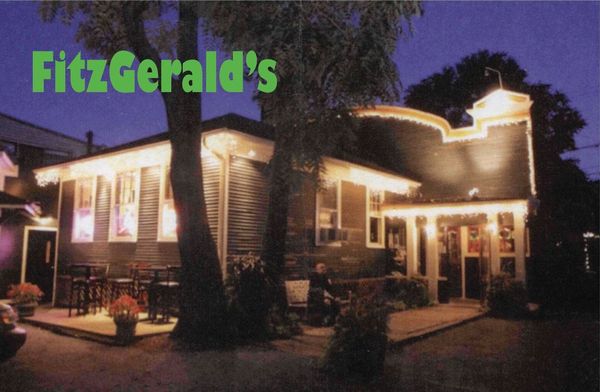
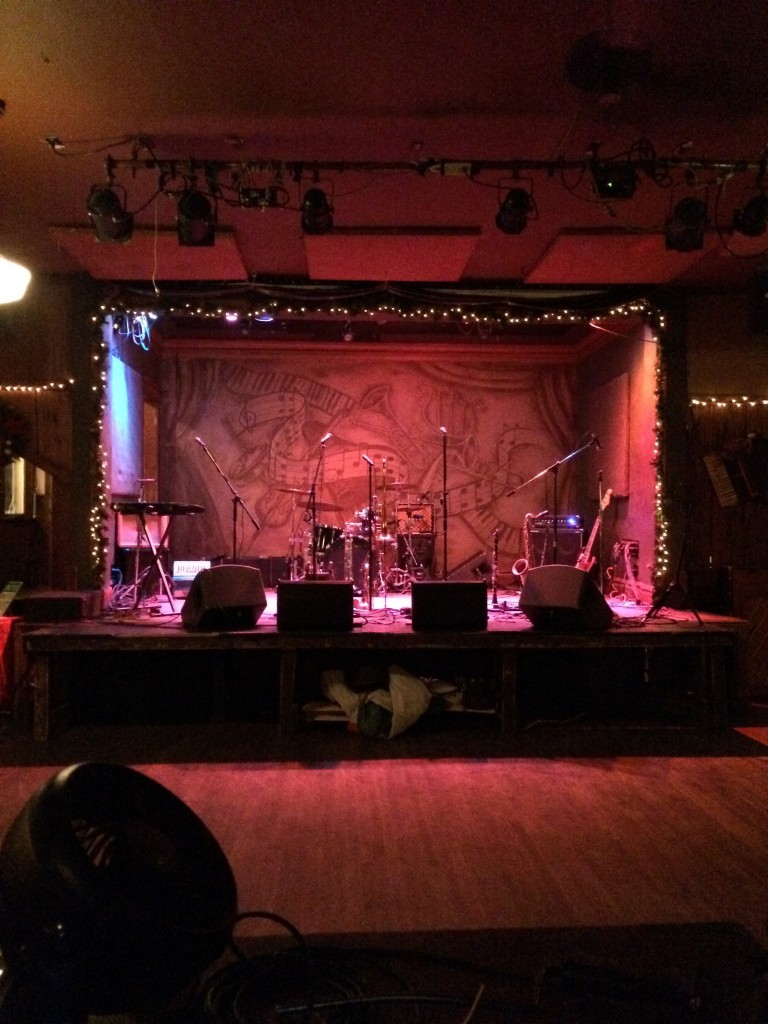
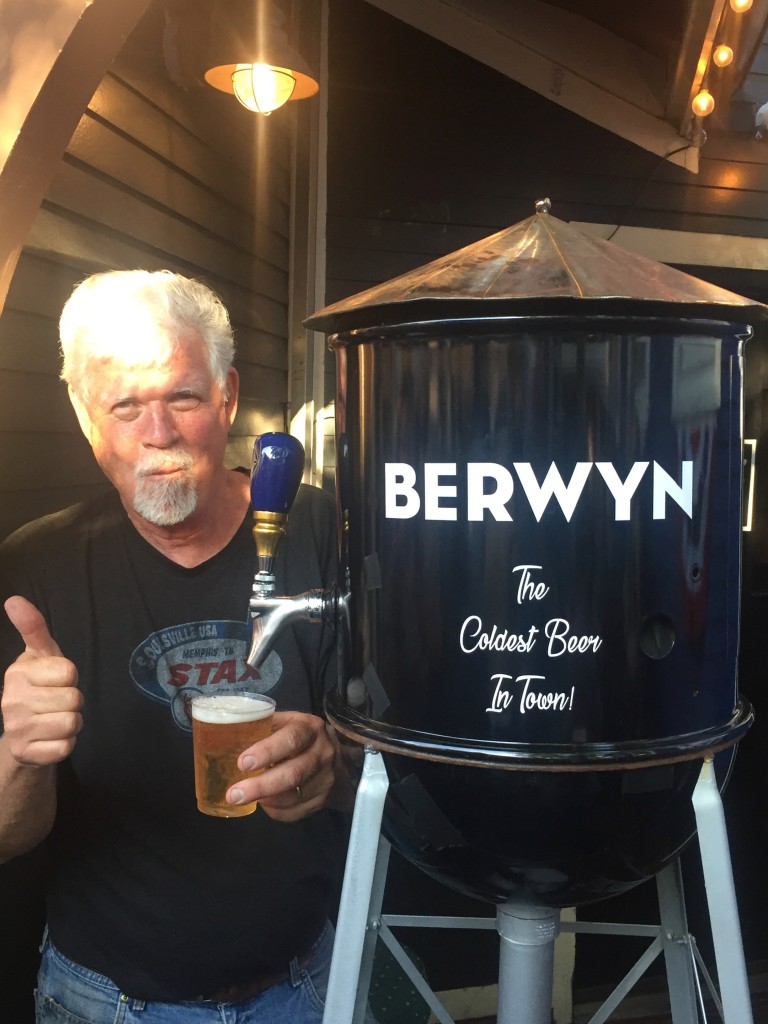
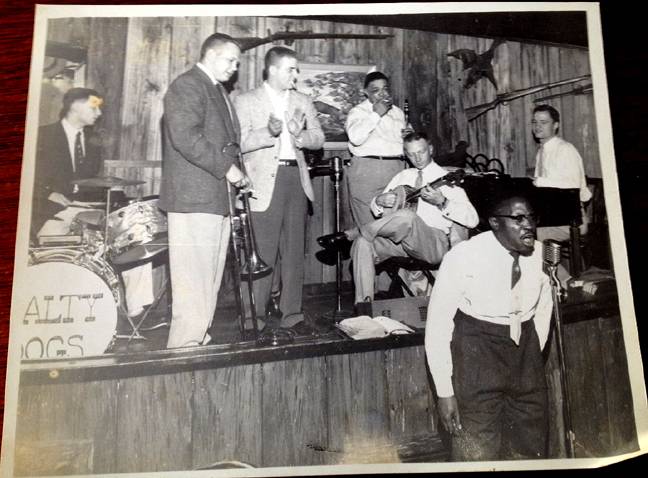
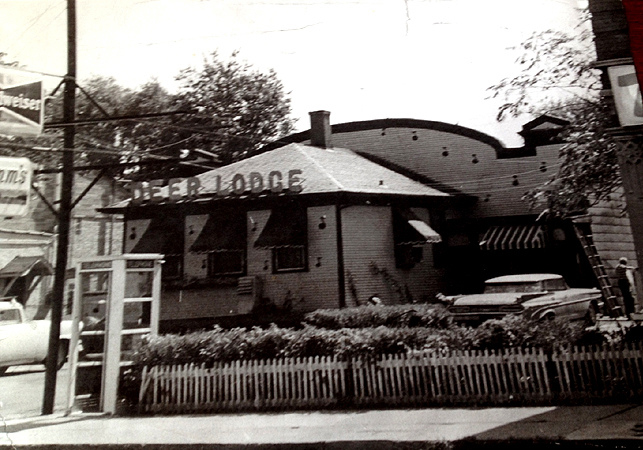
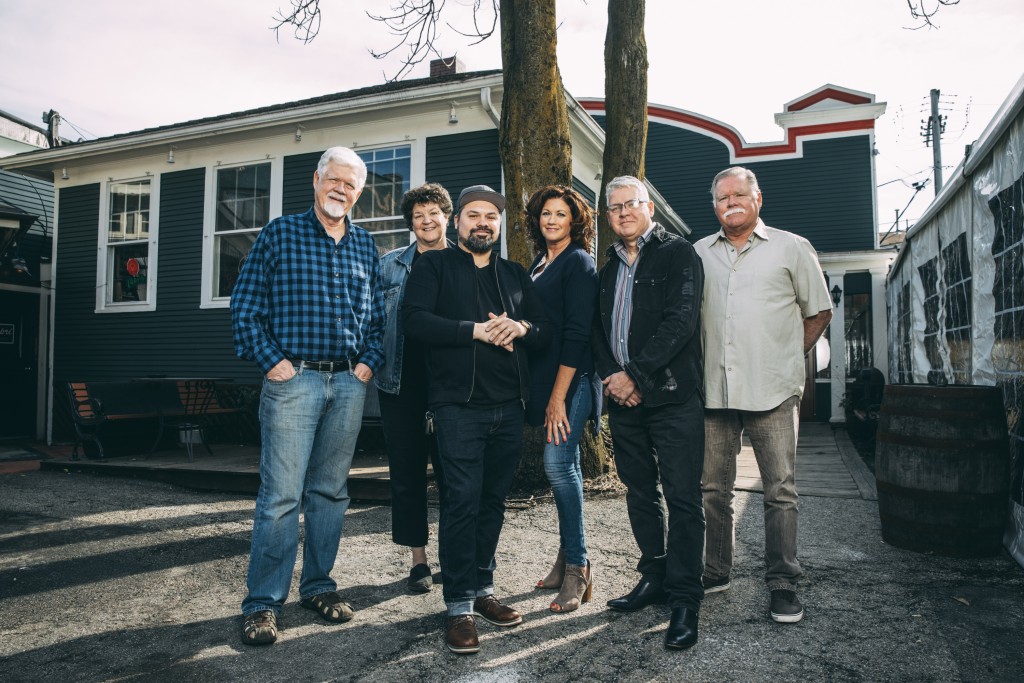
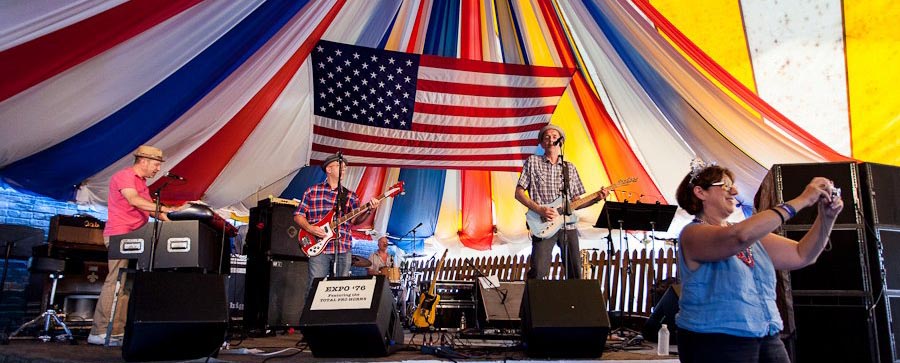

Hey Dave, as always your stories are so beautifully written, genuine and for me visual. I loved the story about John Prine and of course Fitzgerald’s. Thank you for being there for us.
Thank you so much Cindy, we must have a drink when this is all over. Stay safe and wash your hands often. Your friend, Dave
I went there to see Dale Watson and when I came back from the bathroom some tall guy with “STAFF” was standing where I’d left my wife. I wanted my spot back so I yelled up “do you work here?” and he nodded yes; so I told him to go back to work so I can see again. He immediately started to walk away and then turned arond to tell me he wasn’t working right then! I’d see this guy around when I’d go to Fitzgeralds and chit-chat him when I’d be out having a smoke and he’d be minding this and minding that around the place. I’d hold a board or help with a ladder or hold the door for him carrying stuff. I had no idea he was the owner.